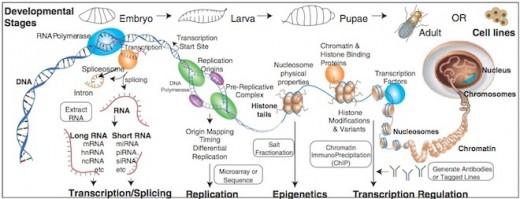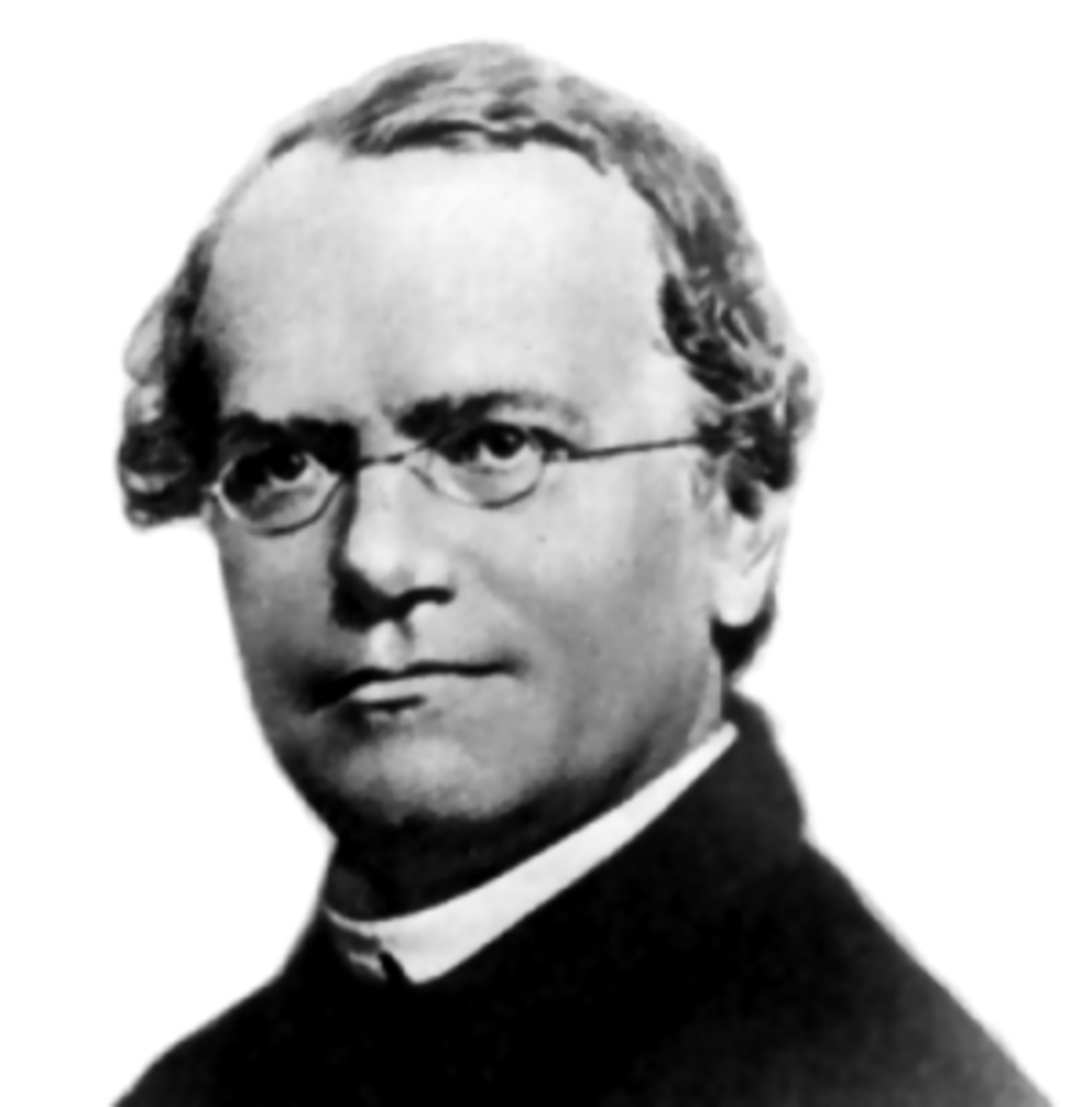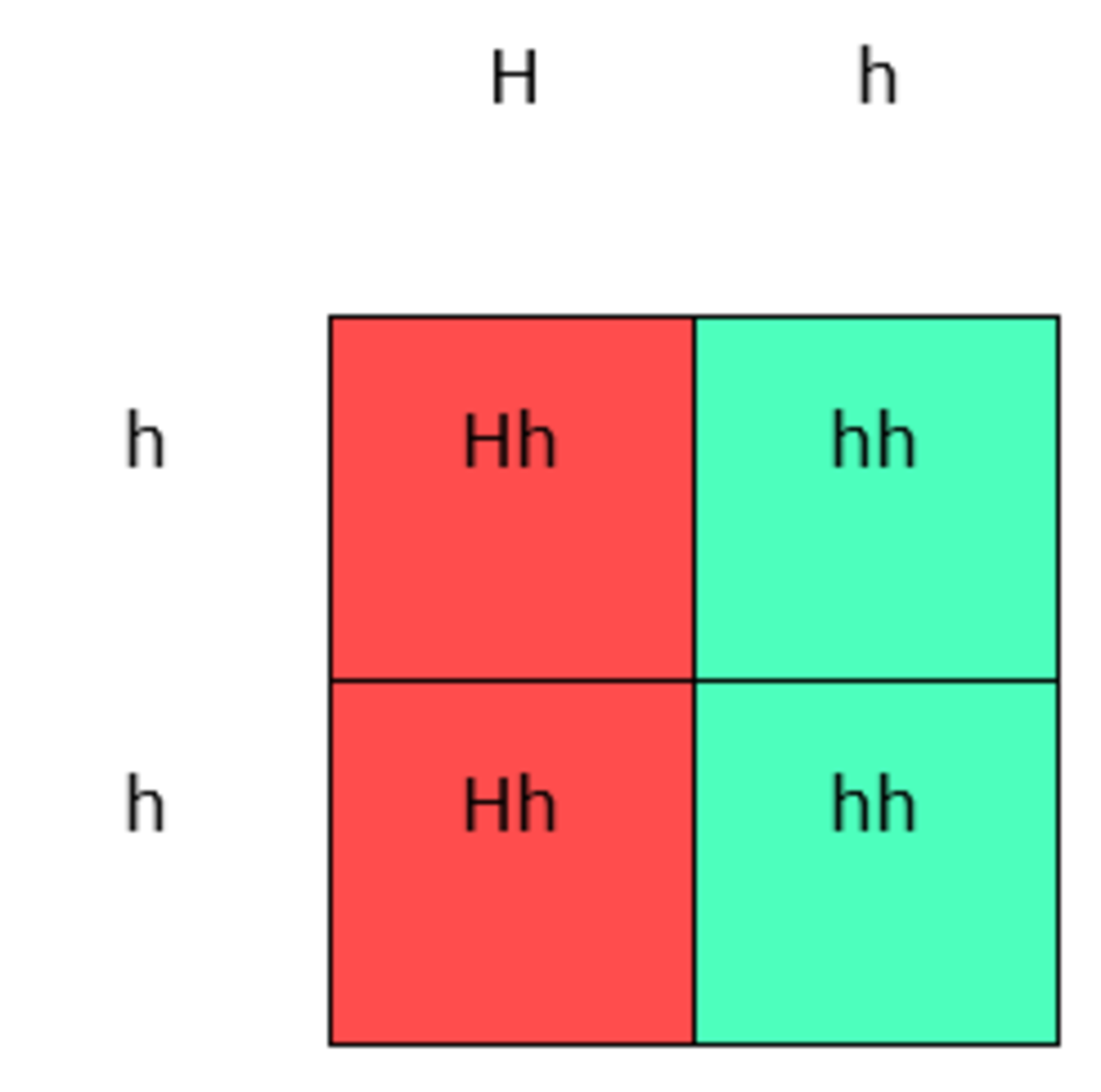DNA Does Not Determine Entire Genetic Fate
Gene to Gene Interactions, New Routes to Desease Prevention


What Mendel Said is True, But Not the Whole Truth
Is Gregory Mendel Wrong?
Who is he? He is an old dead monk that loved to garden. While playing in his garden, planting various pea plants he noticed their characteristics and organized into a systematic method. Obviously, he did not have much to do. He made notes about what happened when his patiently cross-bred pea plants were grown over several years, separating the pea plants by their characteristics. He discovered the mathematical foundations of modern genetics. It was what I learned in science, way-back-when planes had propellers. Now, I know old Mendel did not learn everything about genetics.
There is More to DNA Building Blocks
Once thought to contain the blueprint of life, protein-coding genes were just the most visible ink in a parts list. The new studies both expand that list and begin to show how the parts are arranged, and how they interact.
Large-scale genomic studies have failed to turn up common genes that play a major role in complex human maladies. There is a missing heritability problem. Francis Collins, director of the National Institute of Health, refers to the dark matter of the genome.
“It’s become very clear that DNA sequences are just a building block. They don’t explain higher-order complexity,” said Peter Park, a Harvard University bioinformaticist and co-author of one of the Nature studies. “People are sequencing all these genomes, but it doesn’t actually tell us about the activities of the cell.”
Gene to Gene Interactions Hold Significant Implications for Medicine and Inheritance Traits
Joseph H. Nadeau, Chair of Genetics from Case Western Reserve University in Cleveland has discovered that transgenerational genetics effects rival conventional genetics in frequency and strength. What this means in “student talk,” (I used to be a science instructor) gene impact depends on the surrounding genes.
This discovery has shed light on the missing heritability problem, but at a cost of making old Mendel look bad. Mendel’s traditional ideas are being challenged because they do not explain the complete story.
Eric J. Topol, who heads the genomic research at the Scripps Research Institute in La Jolla, California agrees genomics has suddenly gotten a lot more complicated. “There’s a lot of non-Mendelian stuff going on,” he says, “and there’s a lot that we’re going to have to sort out that doesn’t have anything to do with the DNA sequence.
Example of the “Problem” AKA: “Challenge”
In 2009, researchers in the Netherlands published a stunning report on the genetics of human height. Just a single human characteristic – stunning because it failed to find much of a genetic component in one of the most obvious human traits. Discussions of “missing heritability,” or the roughly 95% of disease risk that’s heritable to the naked eye but can’t be tagged in a sequencer, appeared in the New England Journal of Medicine and Nature.
The missing heritability in the height study typifies recent research studies where large scale genetic screens, known genome-wide associations studies, have identified a group of genes that are statistically associated with the biological trait like height or a disease like obesity, yet account for mystifying little of its propensity to run in families.
A known researcher who request not to be named, stated, “If transgerational effects happen in humans, we’re screwed.” What scares him is that this recent discovery decouples a person’s DNA sequence from their trait, calling into question much of the work of the scientist have done to find genetic sources of complex diseases and develop drugs that target them.
Where conventional gene studies assume that a number of individual genes contribute independently to complex disease, Nadeau’s group has been investigating how genes can work in concert to produce illness, or suppress it. Certain genetic variants neutralize other disease genes, so that a person’s susceptibility to disease may depend more on the combined effect of all of the genes in the background than on the disease genes in the foreground. The impact of any given disease gene depends on the surrounding genes.
Summary
Science is a process. No body of knowledge is static; science too is dynamic. Learning is built upon prior learning. It may sound like a huge break, Nadeau says, “…these exceptions should come as no surprise. Mendel picked traits where he would get simple genetics.” What Mendel said is true, but not the whole truth as we know it today…
Related articles:
http://hubpages.com/hub/Your-Brain-on-Blueberries
http://hubpages.com/hub/Gene-Soup-the-DNA-Neighborhood-Makes-a-Difference







